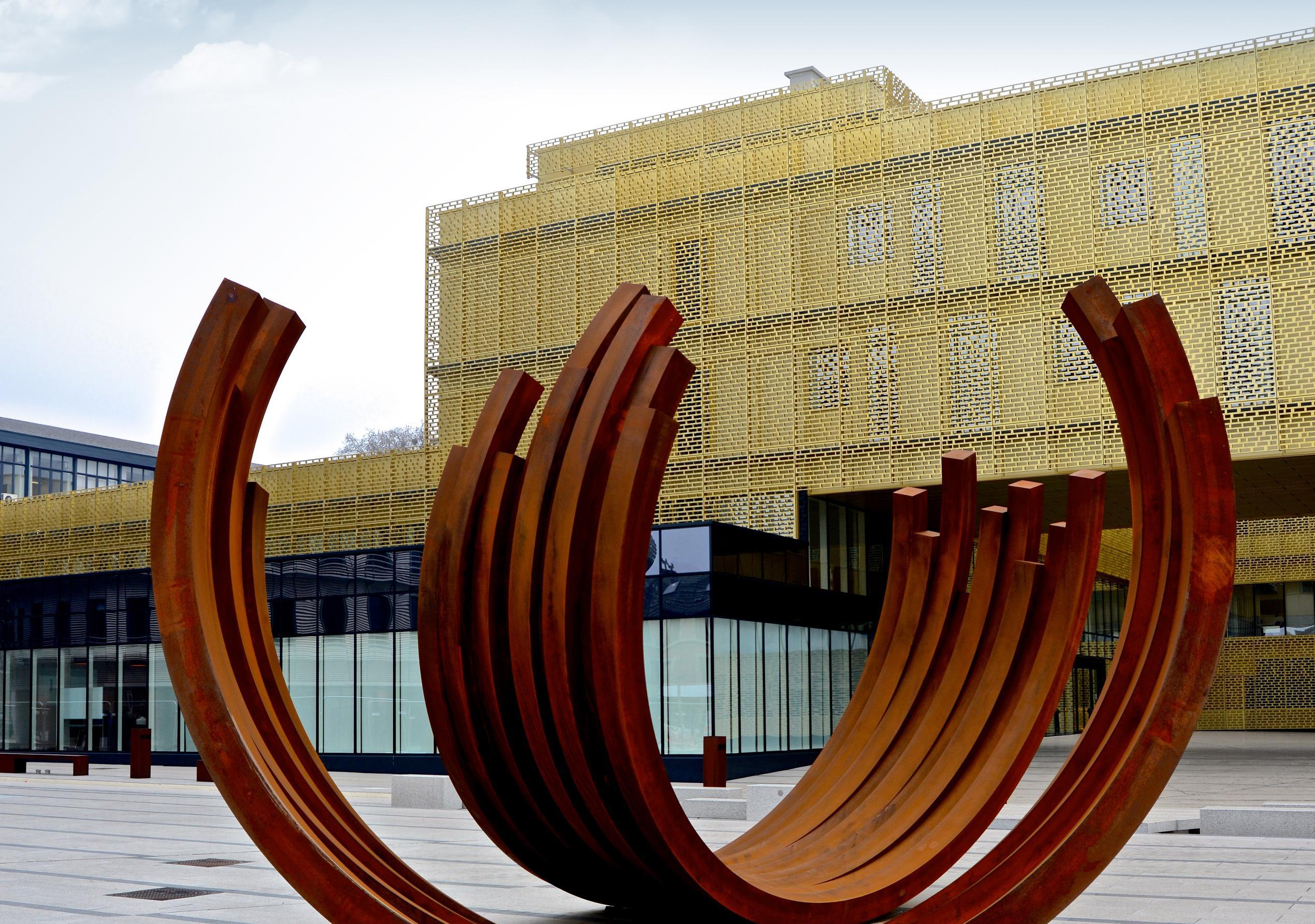Governance
Management of the Group
John Cockerill is overseen by a Board of Directors with a long-term commitment to the Group’s industrial project. It is made up of executive and non-executive directors, chosen for their extensive strategic, industrial, financial, social and commercial experience and their attachment to the John Cockerill Group.
In order to carry out its missions, the Board of Directors relies on governance bodies dedicated to the sound management of the company, whether in terms of strategy, control, risks or operations:
- an Audit Committee
- Strategy & Innovation Committees
- an Ethics Committee
- a Nomination and Remuneration Committee
- a Development Committee
- an Executive Committee, whose members may be invited to attend meetings of the Board of Directors when items within their area of expertise are on the agenda.
These coordination forums ensure the interconnection of the Group and the cohesion of the actions undertaken across the board. Their respective responsibilities are clearly defined.
Note in 2021
The composition of the Group’s Board of Directors did not change in 2021. Something new: aware of its responsibilities and their evolution over time, however, the Board of Directors has decided to affiliate the Group to ’Guberna‘, the Belgian Institute of Directors; this is a way to stay informed and be trained in good administration. The attendance rate in the Board of Directors was 95.4% in 2021.
Several changes took place in the Executive Committee between the end of 2020 and the start of 2022.
Following the developments in the energy market, the Energy sector was split into two independent sectors, John Cockerill Renewables and John Cockerill Energy Solutions. This operation should allow each of them to better adapt to their respective market dynamics. From January 2022 onward:
- John Cockerill Renewables has brought together technologies and expertise in solar thermo-energy, storage, hydrogen, assembly activities (EPC) and technological integrator cells. These activities continue to be managed by Raphaël Tilot.
- John Cockerill Energy Solutions brings together the technologies of heat recovery boilers for combined cycle power plants, industrial boilers and associated services. John Cockerill Energy Solutions has been placed under the responsibility of Eric Absil.
In addition, Christophe Cassant joined John Cockerill in 2021 to take over the management of the Environment teams. He has 25 years of experience in the environment, in particular at Veolia and Suez. He succeeds Jean Gourp, who has become President of John Cockerill Asia-Pacific.
Patrick Paramore, the Commercial and Legal Director, has passed the baton to Thierry Josz, while remaining available to the Group for high-level expert missions. Patrick has been working for John Cockerill for more than 31 years. Over the years, he has traveled the world and developed unparalleled expertise in international contracts and commercial negotiation. Thierry Josz worked together with Patrick for more than 6 years as Head of Contracting. He will be keen to continue to develop the solid team that Patrick has built around him.
In order to consolidate the development of the Group and respond even better to the needs of our time, John Cockerill has created a new function of Chief Investment Officer & Public Affairs. This function has been entrusted to Michel Vanhaesbroucke, who joined the Group in January 2022. Michel has 30 years of experience in the energy transition, capital investment funds, the development of new businesses and the establishment of innovation ecosystems. As Chief Investment Officer, Michel’s mission is to identify sources of private or public financing and partnership opportunities in order to support the Group’s strategic challenges. With regard to Public Affairs, Michel’s role will be to support the businesses of John Cockerill in the regulatory and statutory fields, with the aim of making John Cockerill more visible at the level of European decision-making bodies.
Finally, Anne-Françoise Laime, already Group Strategy Director, was appointed General Delegate France in February 2021 as part of the ambition of John Cockerill to achieve strong growth in France.
For its part, the Ethics Committee has been strengthened with additional operational representation: Nancy Davis, General Manager of John Cockerill Balteau, joined the Ethics Committee in October 2021. The rate of participation in the Ethics Committee was 86% in 2021.
Still on the subject of ethics, the Committee has taken the ethical questions raised by employees into account by expanding its policy on ethical practices, with an additional chapter on human rights. Following the setting up of this Committee in 2013, more than 4 200 employees have been made aware of ethical practices.
From 2022, the new e-learning module dedicated to ethics will allow each new employee to attend an ethical awareness training course as soon as they join the Group.
More info: www.johncockerill.com.
- Copied
The United Nations Sustainable Development Goals (SDGs)
In 2015, in order to address the urgency of global social, environmental and economic challenges, the members of the United Nations (UN) adopted the 2030 Agenda and defined 17 major sustainable development goals broken down into 169 more specific targets. Following the States, institutions, communities, private and public organizations have largely adopted these 17 goals to guide their policies and practices in favor of sustainable development. This Purpose report highlights John Cockerill’s participation to these global challenges. It makes a link between its activities and the SDGs to which they contribute.
- Copied
